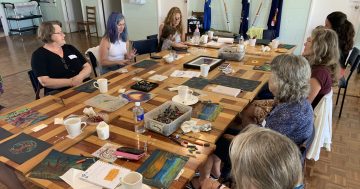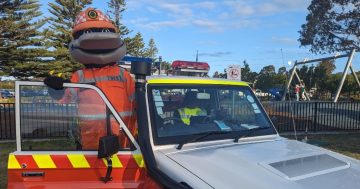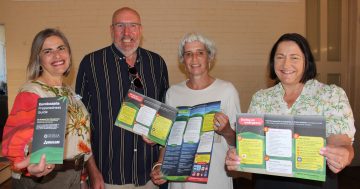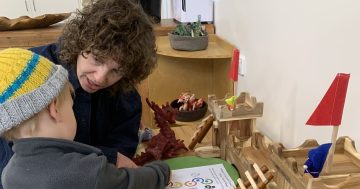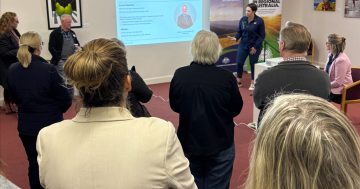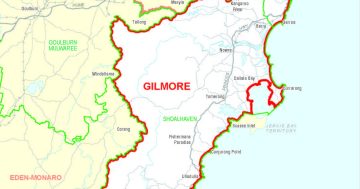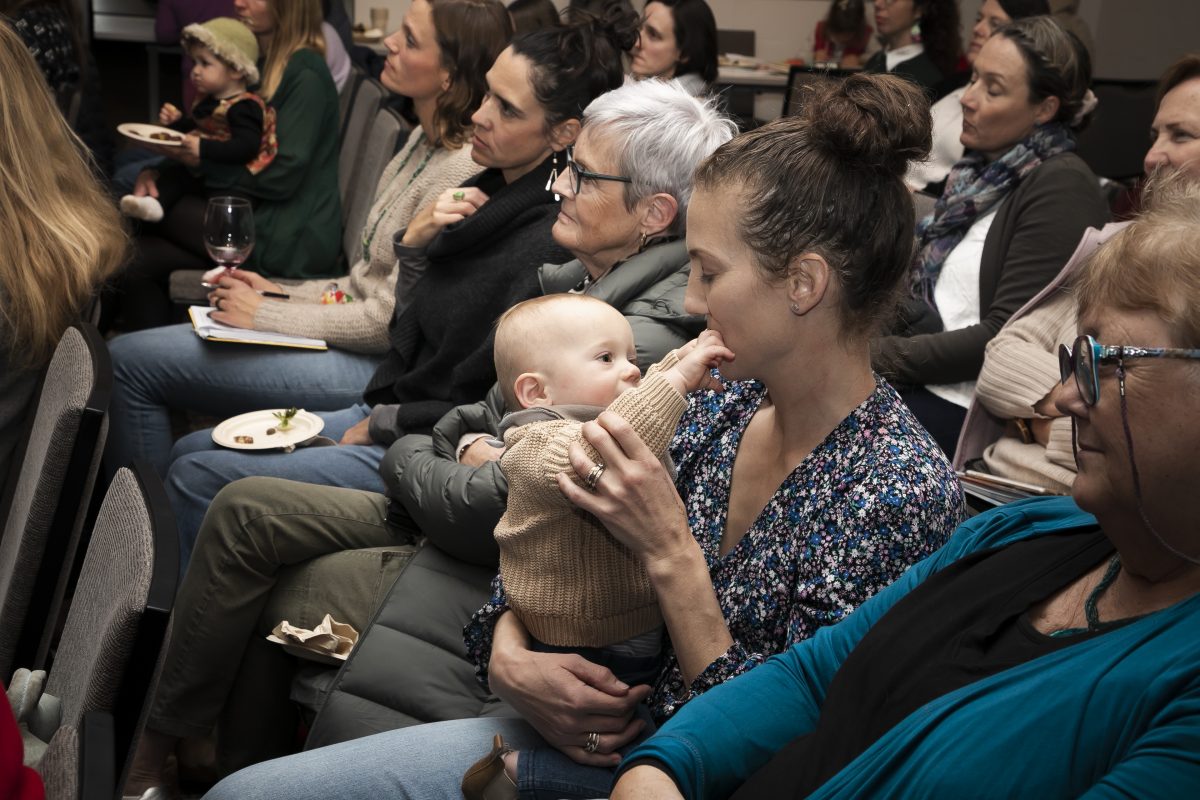
Parents at the report launch at the Eurobodalla Regional Botanic Gardens in 2023. Photo: Australian Breastfeeding Association.
Disasters like the 2019–20 Black Summer bushfires don’t discriminate, as many young families in the Eurobodalla discovered.
Often women and children had to turn up on their own to emergency centres, with limited resources, while dads stayed to defend the property, and those environments haven’t been made to consider young infants and children.
Without tailored disaster planning, pregnant women, infants, and young children are among the most vulnerable during disasters, facing long-term health and developmental impacts.
Following the fires Dr Michelle Hamrosi and Dr Karleen Gribble were determined to change that.
“Pregnant women and young children had to wait in hours-long queues for food and water or to check in to centres,” Dr Hamrosi said.
“For mums with small children, that’s almost impossible.”
In 2022 the Australian Breastfeeding Association (ABA) launched the Community Protection for Infants and Young Children in Bushfire Emergencies Project (ABA Bushfire Project) supported by an Australian Government Preparing Australian Communities grant.
The focus of the ABA Bushfire Project was to address the unique needs of babies and toddlers in emergency preparedness, response and recovery.
Eurobodalla families shared their experiences from the 2019-20 bushfires through the Babies and Young Children in the Black Summer (BiBS) Study, conducted in conjuction with Western Sydney University.
The study found that 65 per cent of families had no emergency plan before the fires, more than 30 per cent of parents evacuated later than planned due to lack of preparedness, and a quarter of families left without adequate supplies for their children.
It also found that emergency responders often lacked understanding of the needs of mothers and caregivers of infants and young children, which limited their ability to provide effective support.
“Some responders assumed mothers would ‘know what to do’ and did not need help,” Dr Hamrosi said.
“Lack of planning in evacuation centres put children and mothers at risk.
“Some centres didn’t have the facilities to boil water for sterilising bottles, or there wasn’t reliable access to clean water.
“A baby who relies on formula in that environment is at high risk of becoming sick from contaminated water or dirty bottles.”
The team used these findings to create resources for parents and emergency organisations to better prepare for disasters.
Eurobodalla families contributed by refining evacuation kit lists and local emergency responders gave valuable input on the types of support needed.
The tools produced by the ABA Bushfire Project will benefit families far beyond the Eurobodalla.
Fact sheets, planning guides, and signage for evacuation centers are just a few examples, all now available on the ABA website.
One initiative born from the project is the annual Playdates with Emergency Services events, championed by SES member Jaclyn Roque and supported by the Eurobodalla Shire Council.
The fun, family-friendly gatherings invite local families to connect with emergency responders through activities and education.
Children build trust and familiarity with emergency services in a relaxed environment while parents receive tailored disaster preparedness advice.
Jaclyn said the events had been hugely successful.
“The ABA Bushfire Project has been invaluable in connecting Eurobodalla Emergency Services with local families,” she said.
“Through the playdates, we’ve not only reduced children’s anxiety about emergencies but also strengthened our community’s preparedness.”
Although there’s still plenty of work for the ABA team to do, they want to celebrate the project’s successes so far.
To mark the end of the BiBs project the ABA Bushfire Project team will hold a celebration at the Eurobodalla Regional Botanic Gardens on Thursday 27 February from 5:30 to 7 pm.







